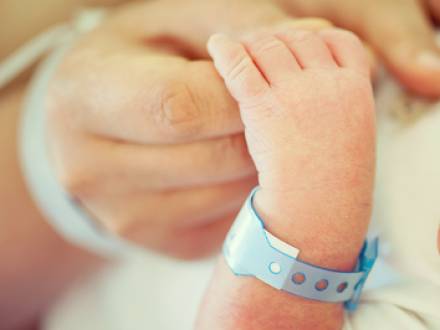5 Common Causes of Serious Birth Injuries
 The birth of a child should be one of the happiest times in a person’s life, but when something goes wrong during labor and delivery, the results can be devastating. Birth injuries can have long-term effects on a baby’s health and development, as well as a family’s emotional and financial well-being.
The birth of a child should be one of the happiest times in a person’s life, but when something goes wrong during labor and delivery, the results can be devastating. Birth injuries can have long-term effects on a baby’s health and development, as well as a family’s emotional and financial well-being.
Understanding the causes of serious birth injuries can help parents recognize when medical mistakes may have played a role. If you believe your child’s birth injury could have been prevented, a Chicago, IL birth injury lawyer can help you explore your legal options and seek compensation for your family.
Prolonged or Delayed Labor
Prolonged or delayed labor occurs when the process of childbirth takes too long, putting unnecessary stress on the baby and the mother. When labor stalls, doctors and nurses must monitor the baby closely for signs of distress and take appropriate action. Failing to intervene when labor has gone on for too long can lead to complications such as oxygen deprivation, brain damage, or physical trauma to the baby.
Medical professionals may need to use tools like forceps or vacuum extractors, or they may need to perform an emergency C-section to prevent harm. When they fail to take timely action, the results can include conditions like cerebral palsy or brachial plexus injuries.
Failure to Diagnose Preeclampsia
Preeclampsia is a dangerous condition that can develop during pregnancy. It is characterized by high blood pressure, protein in the urine, and swelling. If left untreated, preeclampsia can lead to serious complications for both the mother and the baby, including seizures, organ damage, and preterm birth.
Doctors are responsible for recognizing the signs of preeclampsia and managing it appropriately. This may include close monitoring, medication, or delivering the baby early if necessary. Failure to diagnose or treat preeclampsia can result in serious harm, including birth injuries caused by reduced oxygen or premature delivery.
Maternal Infection
Infections in the mother can pose serious risks to a baby during pregnancy and delivery. Common infections that can cause birth injuries include Group B Streptococcus (GBS), urinary tract infections, and certain sexually transmitted infections.
Medical professionals have a duty to screen for infections during pregnancy and provide treatment to minimize the risks. If an infection goes untreated or is not properly managed, it can lead to brain injuries, developmental delays, or even death in severe cases.
Ignoring Signs of Fetal Distress
Fetal distress occurs when a baby does not get enough oxygen during labor and delivery. This is often detected through changes in the baby’s heart rate, which are monitored during labor. Doctors and nurses must act quickly when they see signs of fetal distress.
Delaying or ignoring the signs of oxygen deprivation can lead to hypoxic-ischemic encephalopathy (HIE), a condition caused by a lack of oxygen to the brain. HIE can result in lifelong disabilities, such as cerebral palsy or developmental delays.
Delivery Complications
Various delivery complications can cause injuries in birth that can cause serious damage if left untreated. One example is shoulder dystocia, which occurs when a baby’s shoulders become stuck behind the mother’s pelvic bone after the head has been delivered. This can cause significant trauma to the baby, including nerve damage in the arms and shoulders (brachial plexus injuries) or even a broken collarbone.
Doctors must know how to handle shoulder dystocia safely. If they use excessive force or fail to reposition the baby properly, the risk of serious injury increases.
Contact a Chicago, IL Birth Injury Lawyer
If your child suffered a serious birth injury, you may feel overwhelmed and unsure of where to turn. At Tomasik Kotin Kasserman, LLC, our Illinois medical malpractice attorneys are here to help. We handle birth injury cases on a contingency basis, which means you do not pay us unless we recover compensation for you. Call 312-605-8800 today for a free consultation to learn how we can help you and your family move forward.
TKK blog Center
November 19, 2025 in Medical Malpractice
Botched Abdominal Surgeries Lead to Lifelong GI Tract Issues
Read MoreOctober 16, 2025 in Personal Injury
How Can a Personal Injury Attorney Help After a Refinery Accident?
Read MoreSeptember 17, 2025 in Personal Injury
Back to School: Are Universities Liable for Student Injuries?
Read More









